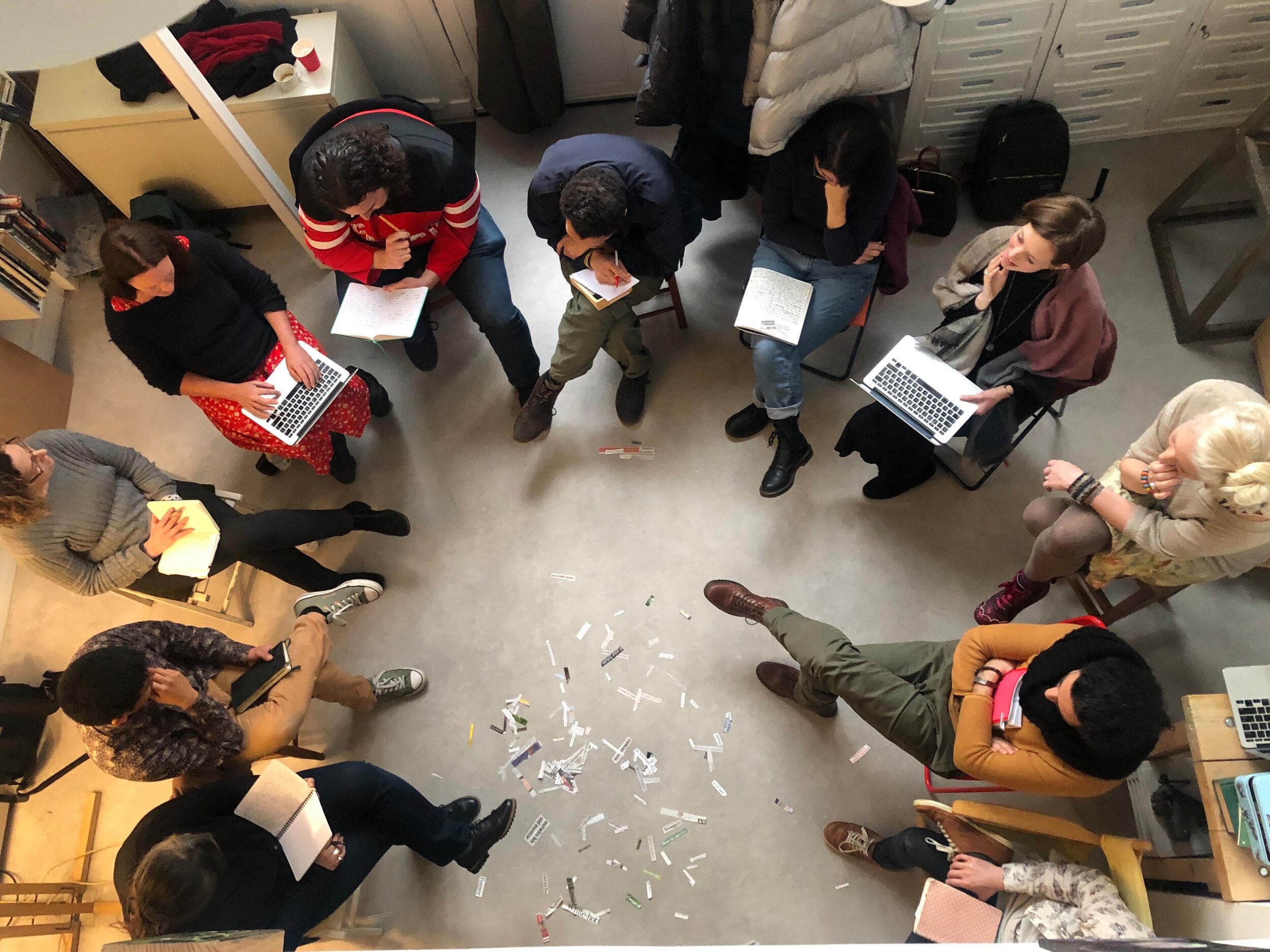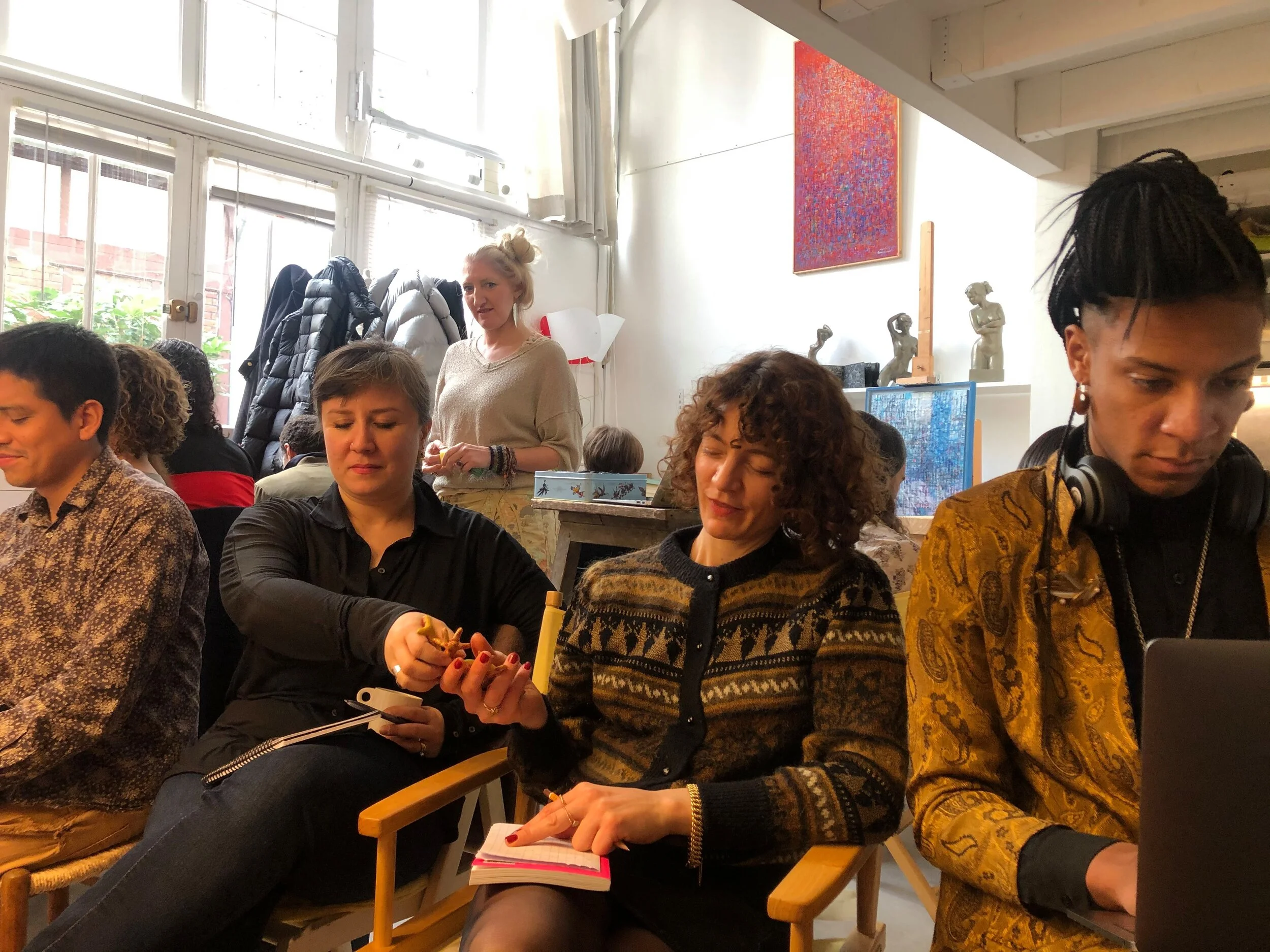Review: Dada Workshop, l'AiR ARTS residency
UNSHATTERING THE MIRROR
Le hasard est une arme contre l’inertie – Chance is a weapon against inertia
When asked to lead a workshop for L’AiR Arts multidisciplinary residency programme last January, I had the chance to consider aspects of my own writing practice in the context of the 1920s, particularly pertinent for me as I am final-drafting a novel set in that period, and thus I decided to mine Dada philosophy for approaches that could propel the resident artists on an enjoyable gambol through the elysian fields of their subconscious. The niceties of plot could take a hike for once: fiction can become careless when concerned with structure but blind to life’s mysteries.
In the 1920s artists in Europe were reeling from the unprecedented horrors of WWI and engaged in new ways to reflect life – and to enjoy its most unfettered excesses. “It is at these troubled periods that frivolity, even license, are most easily understood, because one enjoys with gusto what tomorrow may belong to somebody else.” Raymond Radiguet: Le Bal du Comte d’Orgel (1924).
If art is a mirror reflecting life, what should it show?
In Paris, US emigrés Hemingway and Stein strove to eliminate artifice, for pared-back fictional realism and pure sentences to create modernist word portraits… Joyce, having fled Dublin, streamed the chaos of human thought in its turbulent and often myopic splendour, hurling neologisms and portmanteau words onto the page… Barnes and Breton unfolded the landscape of dreams to draw out unsettling desires… What seems to be most at issue is the fundamental oddness of our minds – what it means to be human, to survive war and destruction, how the cacophony of our thoughts can translate into art. In Tristan Tzara’s play, Le Coeur à Gaz (1921), the characters striving for constant inner rebellion are the components of the body itself:
Ear: "The eye tells the mouth: open your mouth for the candy of the eye”
Mouth: "Everyone does not know me. I am alone here in my wardrobe and the mirror is blank when I look at myself."
Tzara, a Romanian writing in French, like non-English writers in English had the advantage of greater liberty in using and abusing an adopted or colonially imposed language, thus literality and sense are less of a hindrance in the deeper investigation of conflicted feelings.
In the workshop, held in an ancient Montparnasse studio, we directed our instinctive responses at a series of random objects, disparate fragments from life passed from hand to hand at increasing speed and strangeness in the way that dreams often pass, we might look at a nutmeg grater and think of a crocodile, see a banknote and sense the bristles of old beards, and so on. Then we wrote in untrammeled abstraction, unceasing, automatic, delved from the hinterland of our psyches. The second exercise involved the rearrangement random of words and phrases clipped from newspapers, to write with the least possible agency or intention… thus we crawled amid a flurry of castaway words, jointed and disjointed them to create new phrases.
And then, we morphed into a Salon.
Many thanks to Mila, Emily and Kunji, and to everyone who took part.
Helen Cusack O’Keeffe

